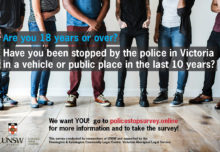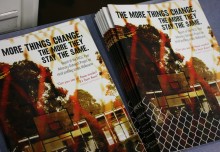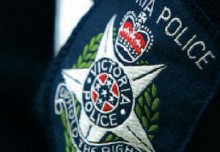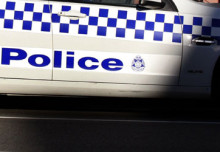PAP has recently released two important reports around policing in the past months.
PAP is proud to release these two very important reports. The first is on Predictive Policing and the tools Victoria Police use to assess risk on young people.
The other is on COVID-19 Policing which was undertaken by a coalition of organisations in 2020.
Predictive Policing
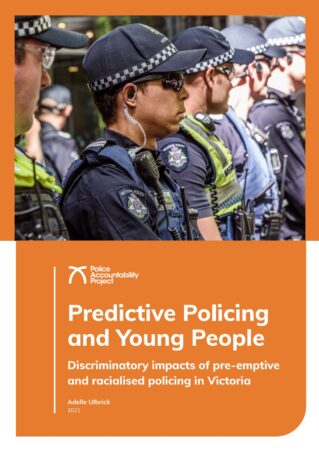
Predictive and pre-emptive policing strategies that aim to prevent recidivist offending are used around the world. These predictive strategies rely on data and computerised algorithms that have been found to unfairly and disproportionately target particular racial and ethnic groups. The risk assessment tools used to create algorithms are not neutral and they are not objective but are embedded with skewed historical data, and certain assumptions, beliefs, and expectations about what the risk of offending looks like (the ‘risk paradigm’). They are used in Victoria, where police operations implement data gathering and predictive tools that embed a bias resulting in racialised police outcomes. Victoria Police continues to use predictive tools even though their use has been discredited, or discontinued, within Australia and internationally.
Our recommendations for Victoria Police are:
- Victoria Police should immediately discontinue the development and use of predictive and pre-emptive policing tools or suspect target lists involving young people. This includes algorithmic tools that rely on historic crime data and all police operations that rely on these tools. This freeze should remain in place until implementing a comprehensive and independent review of these tools.
- Victoria Police must publicly release all information on predictive or algorithmic-based tools or databases currently in use, including criteria for inclusion on suspect or target databases; how risk categorisation is allocated; and age, gender, ethnicity and location breakdown of people on these databases.
- Victoria Police should periodically provide publicly accessible information about the methods and processes for people to appeal their inclusion on suspect target lists.
- Victoria Police must enforce policing practices that minimise and avoid police contact with non-offending youth, and place an immediate prohibition on all police stops and questioning for the express or secondary purpose of intelligence gathering.
- Victoria Police must ensure members only stop and question young people if they have a requisite reasonable belief to suspect offending, as stipulated by the Crimes Act 1958 (Vic), s 456AA(1).
- Victoria Police must reinforce in all operations and programs that arrest of young people should be a measure of last resort and not used as a pre-emptive policing initiative.
COVID-19 Policing Coalition in Australia report
This report came out of a coalition of organisations capturing police interactions during the time of COVID-19 in the early part of the pandemic. The website covidpolicing.org.au was used to capture’s people’s interactions with police that seemed unlawful or harmful. The coalition then asked a number of academics to analyse the reports and commissioned a public report of their analysis.
From March 2020 onwards, all Australian states and territories passed special laws introducing new police powers and criminal sanctions aimed at enforcing Covid-19 restrictions. This report analyses 90 incident reports submitted by individuals of their Covid-19 policing experiences that were recorded on the COVID-19 Policing website between April 6 and August 1, 2020. Reports were received from all states and territories apart from the ACT, but the majority (71%) originated from Victoria, where most of the participating organisations were based.
Almost all the reports concerned complaints about police behaviour.
The report identified the following key themes from the narrative reports: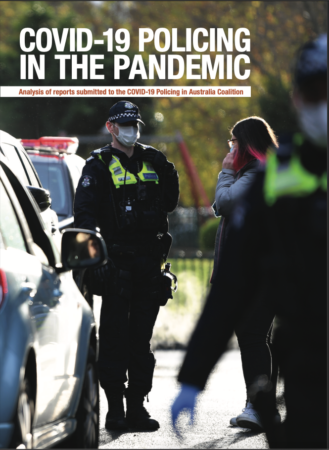
- Tensions between the objectives of Covid-19 policing and reported impacts on health Covid-19 policing had adverse effects on people’s exposure to infection – either through directions to places that were enclosed or, in some protests, more crowded; and through police failure to maintain social distance in interactions with individuals. Many of those submitting reports to the website also described how Covid-19 policing had affected their health – it reduced their access to health services; it resulted in immediate and subsequent psychological distress; and some people reported the ongoing impact of policing to be a barrier to their involvement in activities that supported their well-being such as exercise.
- Concerns about discriminatory policing on the basis of disability, age or race
It was significant that there were 21 occurrences in which the complainant reported feeling discriminated against either on the grounds of race/ ethnicity, disability, age or gender, or sometimes a combination of these grounds. Many of these complaints emerged from police intervention while individuals were resting while exercising, an approach which discriminates against people with mobility-based and other forms of disability as well as older people. - Concerns about police not physically distancing
A prominent complaint was that police did not physically distance themselves from the public, by standing too close or not wearing masks. Individuals expressed dismay, unease, and strong upset at police not maintaining physical distancing from each other and the public. Concern with the health risk of policing escalated when police confronted individuals in circumstances regarded as unnecessary, thereby increasing the risk of accompanying exposure through unnecessary physical proximity. - Concerns relating to policing and legal uncertainty
Unsurprisingly, many complainants perceived Covid-19 policing to be unfair because of the uncertainty of the applicable rules at a particular time and place – whether because of the absence of signs about park closures, or inconsistent messaging between state governments and police officers. Some complainants believed police had applied the law incorrectly, others shared their expectation that police know and be able to advise on the legality of various activities under Covid-19 restrictions. It is significant that 61.4% of complaints believed that the police intervention had been unreasonable. This raises the likely possibility that a proportion of police move on directions, searches and fines may be unlawful. - Complaints about the policing of protest
There were numerically few reports concerning the Covid-19 policing of protest, but these reports were significant in illustrating a continuity with controversy over police crowd control techniques, as well as the particular ramifications of policing protests in the pandemic. Complainants were concerned about police breach of social distancing requirements and also contested the legitimacy of police restrictions on socially distant assemblies such as car cavalcades.

